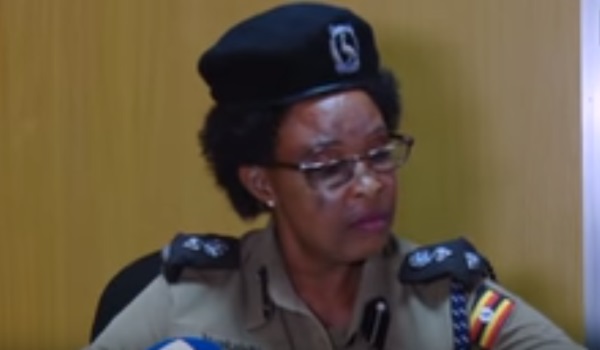Being a female police officer is one of the toughest jobs. Policing is seen largely as a masculine role with a tedious training manual used to be shunned by women. Meanwhile, females are now joining police in their droves and taking on specializations such as Traffic Police and Counter-Terrorism.
50-year-old Leona Nyakaisiki who hails from Fort Portal is one of the brave women who joined the Police Force during Amin’s regime in 1975. “I was young, very energetic and very vigilant. you can’t believe but we did it.” Said, Leona Nyakaisiki – Ag. Head, Police Women Affairs Department. Her first posting after training was in Karamoja in 1976 where she had to pursue cattle rustlers. “And they were armed, they were not simple. Even transport was not there to pursue them, we could track them through the bushes.”
After several promotions and now a Senior Superintendent of Police, Nyakaisiki uses her office of Ag. Head of Women Affairs Department to empower her peers. “During training, we normally monitor these women and follow them up. We counsel them because you cannot just recruit and put them to the training school until they come out. We normally go into the training school to mentor them, to mentor them, to find out the challenges they are facing because as I told you the training part is the most difficult one can face.”
Many perceive the Police as a male job, Afande Nyakaisiki thinks otherwise. “We get the same training, same deployment, same salary, same leave, all the benefits that go to a man you also enjoy them. More so you become more knowledgeable.” The 1998 Kichwamba attacks provided Nyakaisiki one of the toughest times in her Police career. On Monday, June 8th, 1998, rebels of the Allied Democratic Forces (ADF) raided Kichwamba Technical College in Kabarole district and burnt 80 students alive in 3 dormitories and abducted a hundred others. “I really hated the situation, today when you tell me about them my mood changes because of what I saw and what I went through.”
According to Nyakaisiki, female police officers must strike a balance between work and family. “Imagine you are breastfeeding but your course comes depending on the age of the child. You present it to your family and you work out a solution. Otherwise, every course year in year out you are breastfeeding, you are pregnant when will you do those courses. And remember when it comes to a promotion they look at your file.” To the female police officers, Women’s Day means a lot. “As a police officer and as a lady, you can’t really look down on me. I know what I want when I want it and when I will achieve it.” Said, Hope Atuhaire – Police Officer. “As a woman, I get so happy that this said Uganda as a nation recognized our presence and took everything into account.” Said, Elizabeth Nakandha – Police Officer.

